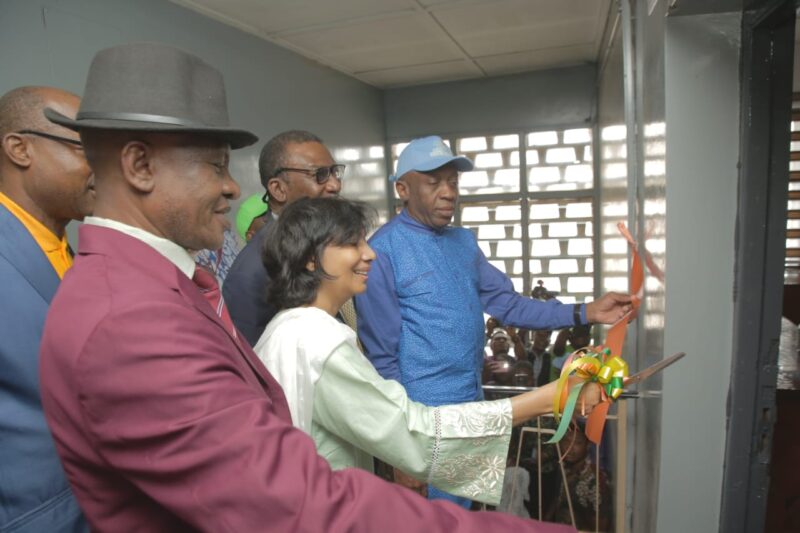1
Lagos – In a bold stride towards tackling child mortality, transforming child survival and development across Africa, the United Nations Children’s Fund (UNICEF) has officially launched Nigeria’s first-ever Behavioural Insights Research and Design Laboratory (BIRD-Lab) at the University of Lagos (UNILAG).


This groundbreaking facility—only the second of its kind on the continent—places Nigeria squarely in the global vanguard of behavioural science-driven policy reform.
Developed in collaboration with 19 Nigerian universities, the BIRD-Lab is a strategic intervention designed to harness behavioural insights to tackle the country’s most pressing health, education, and social challenges. It will serve as a national hub for both conventional and cutting-edge behavioural research, with the singular aim of improving child survival outcomes through evidence-based solutions.
The unveiling ceremony, held at UNILAG’s College of Medicine, drew a formidable coalition of stakeholders, including government officials, civil society leaders, media professionals, and academic partners—underscoring the urgency and scale of the initiative.
Prof. Afolabi Lesi, representing UNILAG Vice-Chancellor Prof. Folasade Ogunsola, hailed the lab’s multidisciplinary and Afrocentric foundation. “With over 23 research centres, seven institutes, and eight innovation hubs, UNILAG is primed to be a formidable partner in this project,” Lesi stated. “This isn’t just medical science—it’s a collaborative movement involving sociologists, community physicians, and development experts. We are witnessing history in the making.”
UNICEF Nigeria Country Representative Wafaa Saeed declared the lab a game-changer in the design of child-focused interventions. “Everything UNICEF does begins and ends with children. BIRD-Lab Nigeria brings together experts from psychology, sociology, nutrition, and communication to co-create solutions that are culturally rooted and locally relevant,” she said. “This is not about importing foreign models—it’s about building Nigerian solutions for Nigerian children.”
Prof. Akin Osibogun, Chairman of the launch, described the BIRD-Lab as “a novel addition” to Nigeria’s research landscape. “With 19 universities already enlisted and more lining up, the consortium is robust and the future promising. This initiative prioritises evidence for planning and action—exactly what Nigeria needs.”
Prof. Ademola Oremosu, Provost of UNILAG’s College of Medicine, stressed the lab’s potential to reshape maternal and child health beyond hospital walls. “We will measure impact through reduced maternal and infant mortality, improved child survival, and better immunisation coverage. This is about guiding policy with hard data.”
UNICEF’s Chief of Social Behaviour Change, Kshitij Joshi, emphasised the lab’s replicability and policy relevance. “This platform unites diverse expertise to address challenges from health to education and sanitation. Student-generated data is already being transformed into policy briefs that shape government interventions. The Federal Ministry of Health has committed space to integrate BIRD-Lab findings into national frameworks.”
Rownak Khan, UNICEF Deputy Nigeria Representative, concluded with a powerful call to equity: “UNICEF is proud to partner with UNILAG. This lab must become a vehicle for justice—ensuring no child is left behind, especially the most underserved and excluded.”
With its bold vision, strategic partnerships, and unwavering focus on children, the BIRD-Lab marks a new chapter in Nigeria’s development story—one driven by science, collaboration, and a relentless commitment to equity.








